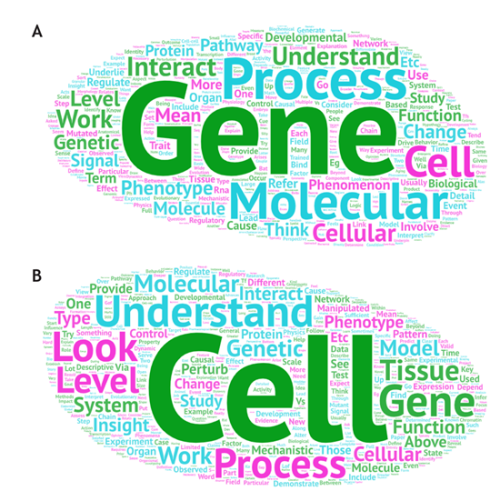What do we mean by ‘mechanism’ anyway?
Posted by Katherine Brown, on 21 January 2025
The latest issue of Development (vol 152 issue 2) features a Perspective article by Duygu Özpolat, Swathi Arur (one of Development’s Academic Editors), and Mansi Srivastava (currently serving as a Guest Editor for the journal). The piece represents their views and is not intended as a formal position statement of the journal, but much of what they write resonates strongly with my own opinions and with discussions I’ve had with the editors of the journal over the years.
Back when I was growing up as a developmental biologist, the tables of contents of journals like Development were full of papers with some variation on the title “Gene/protein X controls process Y in organ/organism Z”. Indeed, my first ever paper (proudly published in Development) essentially conforms to this formula. And getting those papers published in ‘top’ journals at that time (and since!) generally meant understanding that ‘control’ at a molecular level – what other genes or proteins does X interact with or regulate? This approach has been hugely important for our field, and we’ve made enormous progress in understanding the logic of developmental processes through delving into molecular mechanisms. But it’s not the only approach or level of understanding at which we can gain profound insights. As someone who’s always been interested in cellular and tissue-level behaviours, I’ve often felt this focus to be too narrow. Indeed, one of my mantras since joining the journal has been that “mechanistic understanding doesn’t necessarily mean molecular mechanistic understanding”. (The other, incidentally, is that “development doesn’t stop at birth” – which is why I’m personally delighted by our current special issue topic!).
It’s notable that, in the latest iteration of the journal’s Aims and scope, we actually removed the words ‘mechanism’ and ‘mechanistic’ from our description of the kinds of papers we seek to publish. That’s not to say we’re not interested in mechanistic work – of course we are! – it’s that we recognise that ‘mechanism’ is all-too-often conceived as being at the molecular/genetic level. Particularly with advances in 4D imaging and in measuring and manipulating forces, we can now gain significant insights into how developmental processes are orchestrated by studying cellular behaviours and without really worrying about what molecules are involved and we’d like those papers to find their natural home in Development. We also need to acknowledge the importance of foundational descriptive work, without which those interested in understanding ‘mechanism’ couldn’t even start their research.

So, if you’re a referee reviewing a paper for Development (or, frankly, anywhere else!), I’d urge you to avoid asking yourself “does this paper provide new (molecular) mechanistic insights?” and instead to ask “how valuable are these findings for the field?”. I don’t think I can put it better than Duygu, Swathi and Mansi do in their article: “question reductionism, be open-minded about the approach used and the level of mechanism under study, and consider each study relative to what is already known in that system, assessing the potential of the work to advance knowledge”.


 (3 votes)
(3 votes)